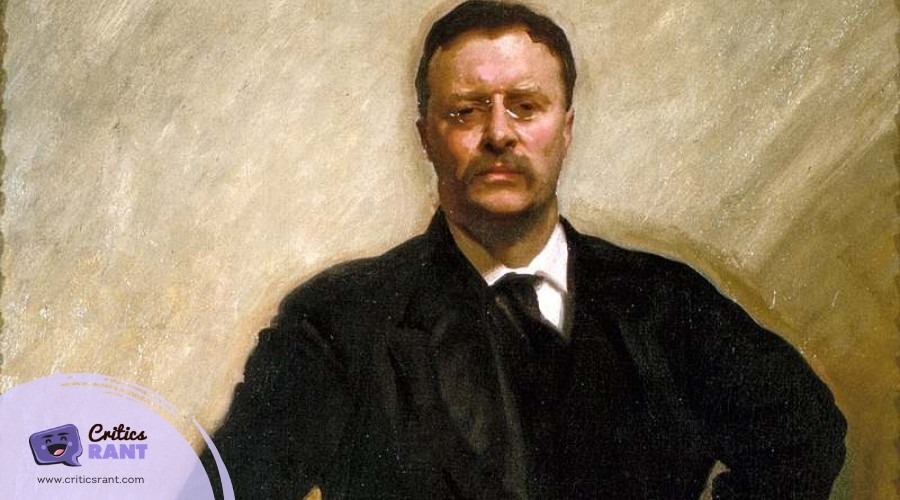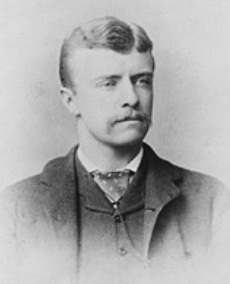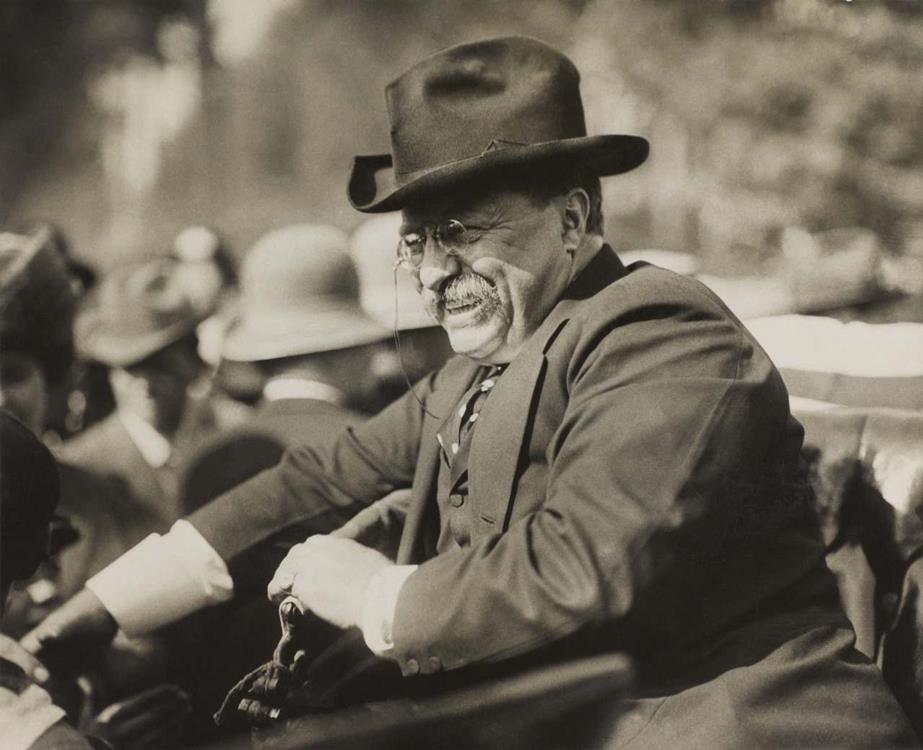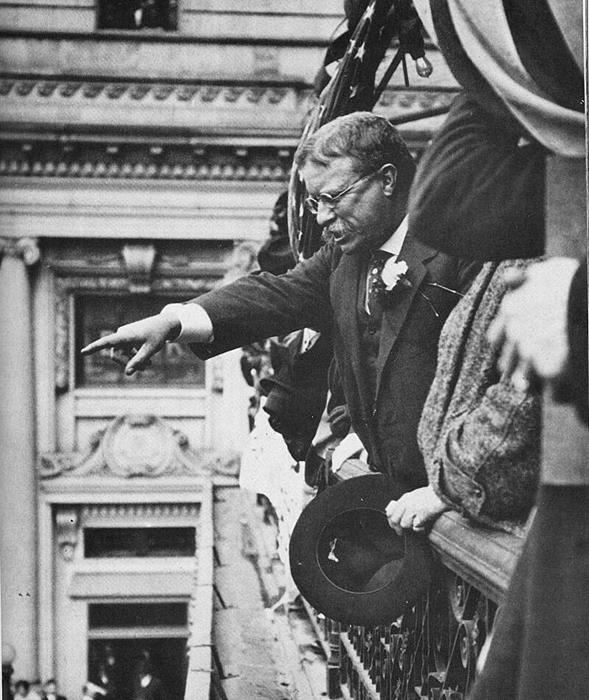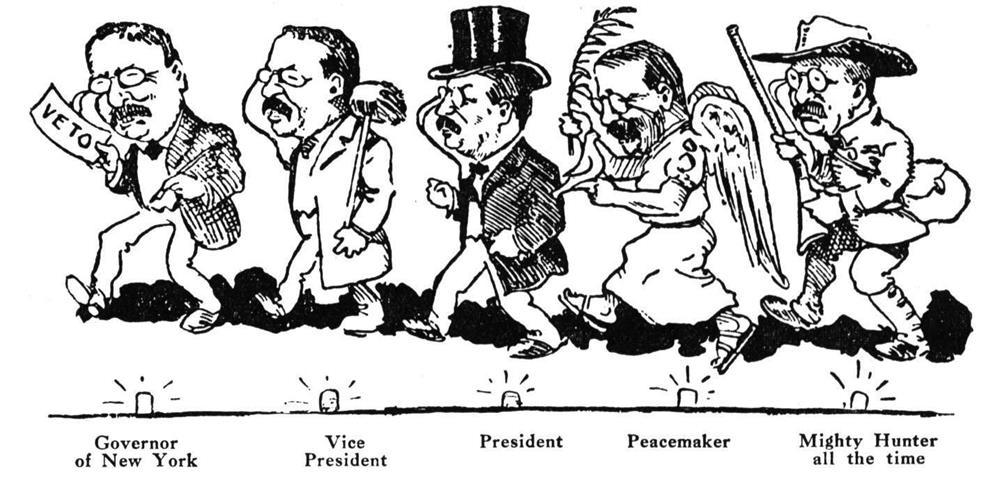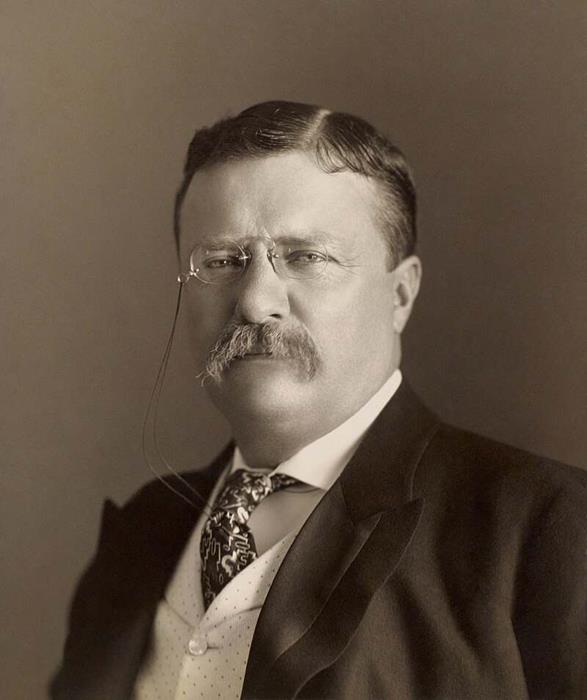Theodore Roosevelt was one of America’s most memorable presidents, not just because of what he did but also because of who he was. His personality was a big part of his life and work. This article will look at the different parts of Roosevelt’s personality that made him stand out. From his energetic approach to life to his ability to lead and inspire others, Roosevelt’s character shaped his time as president and left a lasting mark on American history. In this article, we’ll explore these traits and see how they helped him achieve so much during his life.
Early Influences of His Personality
Theodore Roosevelt’s personality was shaped by a combination of his early life experiences, family influences, and personal challenges. Born into a wealthy New York family in 1858, Roosevelt was a frail child suffering from severe asthma. This early vulnerability played a critical role in forming his determined and resilient character.
Health Challenges and Response
Despite his health issues, Roosevelt adopted a vigorous lifestyle, encouraged by his father, who famously told him, “You have the mind but not the body, and without the help of the body, the mind cannot go as far as it should. You must make your body.” This advice led Roosevelt to embrace physical activities, transforming his weak constitution through boxing, hiking, and weightlifting, which instilled in him a lifelong commitment to physical fitness.
Family Influence
Roosevelt’s family was influential in other ways too. His father, Theodore Roosevelt Sr., was a philanthropist and a businessman, who imbued in young Theodore the importance of civic duty. His father’s involvement in social causes and the Union Army during the Civil War also inspired Roosevelt’s sense of patriotism and justice.
Education and Intellectual Curiosity
Roosevelt was homeschooled due to his illnesses, which allowed for a tailored education that catered to his interests and needs. This education fostered his intellectual curiosity and love for nature and history, which later influenced his policies as president. He was an avid reader and absorbed books on a wide range of subjects, from biology to military history, which equipped him with the knowledge that would serve him throughout his life.
Early Political Experiences
Roosevelt entered public service at a young age, becoming a New York state assemblyman in his early 20s. His exposure to political life early on gave him practical insights into governance and reform, which were enhanced by his studies at Harvard University. These experiences honed his leadership skills and stoked his ambition to use politics as a platform to implement significant changes.
These formative experiences—combating illness with physical vigor, inspired by a socially conscious family, educated in a manner that sparked and satisfied his curiosity, and early exposure to politics—collectively molded Theodore Roosevelt into a dynamic and robust personality that would later define his presidency and impact on America.
Key Traits of Roosevelt’s Personality
Theodore Roosevelt’s personality was a complex blend of vigor, curiosity, charisma, and resilience. These traits not only defined his character but also significantly influenced his approach to leadership and policy-making.
Vigor and Physicality
Roosevelt’s exuberant physical energy was legendary. He embraced a strenuous lifestyle, believing that physical exertion was essential not only for health but also for moral character. His enthusiasm for outdoor activities like hunting, horseback riding, and hiking in the wilderness was part of his broader belief in living what he called “the strenuous life.” This philosophy advocated facing life’s challenges with gusto and perseverance, principles that Roosevelt applied both personally and politically.
Intellectual Curiosity
Roosevelt’s intellectual curiosity was insatiable. He was a voracious reader and an avid writer, authoring several books on a range of topics from history to biology. His intellectual pursuits informed his policies and decisions throughout his career. As president, he used his knowledge to bolster his domestic and foreign policies, understanding the complexities of issues that his administration faced. His curiosity led him to support progressive reforms and conservation efforts and to take a thoughtful approach to international diplomacy.
Charisma and Communication Skills
Roosevelt’s charisma was another central facet of his personality. He had a unique ability to connect with people from all walks of life, whether through fiery speeches or personal correspondence. His assertive and confident public persona made him a highly effective communicator, capable of persuading others and rallying support for his initiatives. His speeches were often charged with passion and conviction, which made him a popular leader whose ideas resonated with the American public.
Resilience and Determination
Perhaps one of the most defining traits of Roosevelt’s personality was his resilience. He faced numerous personal and professional challenges, including the tragic deaths of his mother and his first wife on the same day. Instead of succumbing to despair, he found solace in action, pushing forward with his political career and later overcoming political opposition and personal setbacks with unwavering determination. This resilience enabled him to pursue ambitious projects, such as the Panama Canal and his progressive reforms, against significant odds.
Together, these key traits—vigorous physicality, deep intellectual curiosity, compelling charisma, and steadfast resilience—crafted a personality that was not only larger than life but also perfectly suited to the dynamic and rapidly changing world of early 20th-century America.
Roosevelt as a Leader
Theodore Roosevelt’s leadership style was an embodiment of his vibrant personality, marked by dynamism, innovation, and a profound commitment to reform. His time in office was characterized by energetic leadership and a forward-thinking approach to both domestic and international issues.
Direct Approach and Decision-Making
Roosevelt was known for his direct and assertive approach to leadership. He did not shy away from making bold decisions, often using his executive power to push through reforms and policies that he believed would benefit the country. This decisiveness was evident in his handling of the 1902 coal strike, where he intervened directly to negotiate a compromise between miners and owners, setting a precedent for future presidential involvement in labor disputes.
Progressive Reforms
As a leader, Roosevelt was deeply committed to progressive ideals, which aimed at improving the average American’s life by regulating big businesses, enhancing consumer protection, and conserving natural resources. He established the United States Forest Service and signed into law the creation of five national parks, emphasizing conservation as a national duty. His Square Deal policies aimed to ensure fairness for workers, consumers, and businesses, balancing interests to prevent any one group from overpowering another.
Foreign Policy and Diplomacy
In foreign affairs, Roosevelt’s leadership was equally vigorous. He expanded the U.S. Navy and used his “Big Stick” diplomacy to assert American influence abroad, most notably in the construction of the Panama Canal and in his mediation of the Russo-Japanese War, for which he was awarded the Nobel Peace Prize. His diplomatic style was proactive and relied heavily on the U.S. taking a leading role on the world stage, promoting peace and stability.
Personal Engagement and Public Relations
Roosevelt was also one of the first presidents to effectively use public relations to reach out to the American public. He understood the power of the media and was adept at using it to bypass traditional political channels to communicate directly with citizens. His fireside chats and public addresses were part of this strategy, making him a highly visible and accessible president.
Leadership Through Personal Example
Above all, Roosevelt led by example. His personal integrity, tireless energy, and public-minded spirit inspired those around him. He set a high standard for personal and professional conduct in the White House, which not only bolstered his popularity but also redefined the expectations for future leaders.
Challenges and Criticisms
Theodore Roosevelt’s presidency, while widely celebrated for its vigor and progressive policies, also faced challenges and criticisms. Despite his many accomplishments, Roosevelt’s assertive style and some of his policies drew scrutiny and dissent from various quarters.
Imperialistic Tendencies
One significant area of criticism was Roosevelt’s approach to foreign policy, which some viewed as imperialistic. His role in facilitating the Panama Canal’s construction, for instance, involved supporting a rebellion in Panama against Colombia, which many criticized as an overreach of American influence and manipulation of sovereign affairs for U.S. interests. This “Big Stick” diplomacy, although effective in expanding American influence, was seen by some as aggressive and morally dubious.
Paternalistic Attitudes
Domestically, Roosevelt’s reforms, while intended to balance the interests of capital and labor, sometimes came across as paternalistic. His approach to managing relations between workers and businesses often involved a top-down method that did not always account for the complexities of local and individual needs. This paternalism extended to his views on race and society, which were progressive for his time but still reflected the era’s prevailing biases.
Personality Overshadowing Policy
Roosevelt’s charismatic and forceful personality was a double-edged sword. While it enabled him to accomplish a great deal, it also led to concerns about the concentration of power. His proactive use of the presidential office expanded its scope but stirred fears among some that he was setting a precedent for an overly powerful executive branch, which could potentially lead to authoritarianism.
Criticism from Business Interests
Roosevelt’s regulatory policies, particularly those involving antitrust actions and corporate regulation, were not well-received by many in the business community. His push to break up monopolies and regulate industries was seen as an attack on business and free enterprise, sparking significant opposition from wealthy and influential industrialists.
Environmental Policies
While Roosevelt is often lauded for his conservation efforts, there were contemporary critics who argued that his aggressive pursuit of land for national parks and wildlife refuges sometimes ignored the rights and needs of local populations, including farmers and indigenous groups. These criticisms pointed to a broader debate about the balance between conservation and development, a debate that continues in environmental policy today.
Despite these challenges and criticisms, Theodore Roosevelt remains a towering figure in American history. His presidency is generally viewed as a turning point, introducing more direct government intervention in economic affairs and a more assertive American presence on the world stage. These criticisms, however, provide a nuanced view of his leadership, reflecting the complexities and controversies that can accompany a strong and proactive government.
Lasting Impact of Roosevelt’s Personality on American Politics
Theodore Roosevelt’s dynamic personality and his tenure as president have left a lasting imprint on American politics, influencing both the scope of presidential power and the role of the United States on the world stage. Roosevelt’s assertive approach to the presidency redefined the office, demonstrating that the president could be a direct advocate for public welfare and an active participant in legislative affairs.
His use of the bully pulpit to influence policy and public opinion set a new standard for presidential communication, paving the way for future leaders to engage more directly with the American people. His commitment to progressive reforms, including labor rights, consumer protection, and anti-monopoly regulations, embedded a sense of responsibility in the government to safeguard against the excesses of industrial capitalism, a philosophy that has continued to influence American political thought and policy.
Internationally, Roosevelt’s “Big Stick” diplomacy expanded America’s global influence and established the United States as a decisive force in international affairs, a trend that would grow throughout the 20th century. His work in negotiating peace during the Russo-Japanese War and his efforts in constructing the Panama Canal are enduring testaments to his diplomatic strategies that balanced military power with negotiation.
Domestically, his environmental conservation efforts laid the foundation for the modern national park system and emphasized the importance of natural resource stewardship, which has become a central aspect of national policy. Roosevelt’s robust personality and proactive governance style have inspired countless politicians and leaders who aspire to achieve with similar fervor and commitment to reform, illustrating the enduring influence of his larger-than-life character on the fabric of American governance.
Conclusion
Theodore Roosevelt was a president whose strong personality deeply influenced American politics. His energetic leadership and passion for reform brought significant changes in how the presidency operates and how America interacts with the world. Roosevelt’s legacy of pushing for fairness, protecting the environment, and showing strong leadership continues to impact the United States today, making him a lasting figure in the history of American leadership. His presidency shows how much a determined leader can achieve and the lasting effects of having a clear vision for progress.

